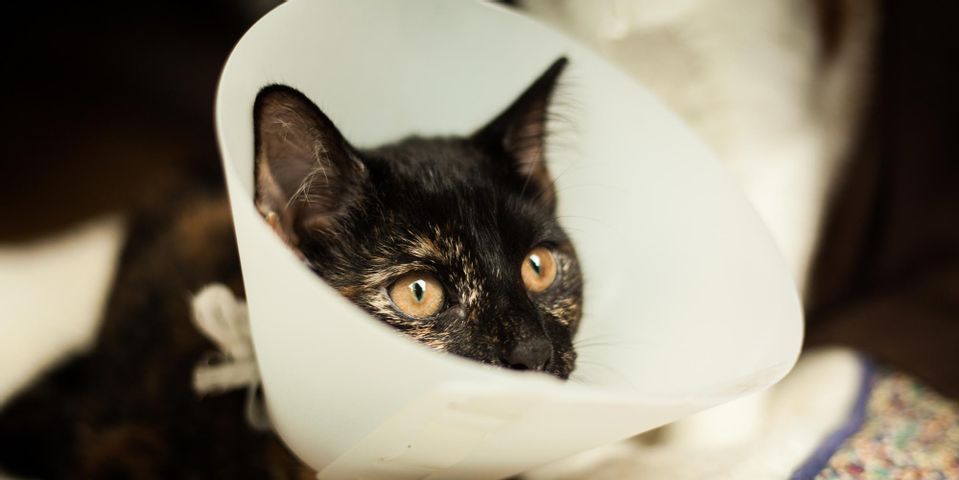
When you adopt a kitten or puppy, spaying and neutering are among your initial pet care tasks. The same is true for older pets who haven’t yet undergone this important surgery. Get answers to common spaying and neutering questions below to help your four-legged friend thrive.
Common Questions About Spaying & Neutering
What’s the difference between spaying and neutering?
Spaying refers to the removal of reproductive organs in female cats and dogs, while neutering involves removing testicles in male felines and canines. All pets are anesthetized, so they don’t feel pain during their surgeries, and receive medication before they wake up, so they aren’t uncomfortable when you take them home.
At what age should pets be spayed or neutered?
Veterinarians recommend scheduling the procedures for puppies as young as 8 weeks if they’re healthy enough for surgery. Adult dogs older than 9 months can be neutered as well if they’re of normal weight and don’t have serious health problems.
Kittens can also undergo the procedures at 8 weeks old. Vets recommend scheduling surgeries before kittens hit the 5-month mark, so they don’t start spraying urine or going into heat.
What are the benefits?
 Spaying and neutering services help pets enjoy long, healthy lives. They help reduce breast tumors and uterine infections in female cats and dogs and prevent testicular cancer in male dogs and cats. The procedure also helps reduce prostate issues in males.
Spaying and neutering services help pets enjoy long, healthy lives. They help reduce breast tumors and uterine infections in female cats and dogs and prevent testicular cancer in male dogs and cats. The procedure also helps reduce prostate issues in males.
Spay and neuter services provide behavioral benefits as well. Both male and female pets are less likely to roam, which helps them avoid injuries from encounters with other pets and wildlife. Behaviors such as marking their territory with urine also decrease.
How can I help my pet recover?
Help your pet recover quickly from surgery by providing a quiet, comfortable place to rest, such as a fluffy bed in a low-traffic room in your home.
Prevent them from running or jumping for as long as your veterinarian recommends, which is usually about two weeks, to keep the stitches from tearing.
Don’t bathe your pet for at least 10 days to prevent irritation, and check the surgical site daily to ensure it isn’t infected.
Use an Elizabethan collar to keep your pet from licking and biting their stitches, which can result in infection.
Since stitches can be itchy as they heal, use a nontoxic topical cream prescribed by your vet.
Contact your veterinarian immediately if the incision site becomes red and swollen or oozes.
Schedule spaying or neutering services at Mililani Town Center Pet Clinic. The veterinary clinic has served the Mililani area of Hawaii for over 29 years, treating each pet like family. Call (808) 625-6744 today to make an appointment, or learn more about their team online. Find more pet care tips on Facebook.
About the Business
Have a question? Ask the experts!
Send your question

